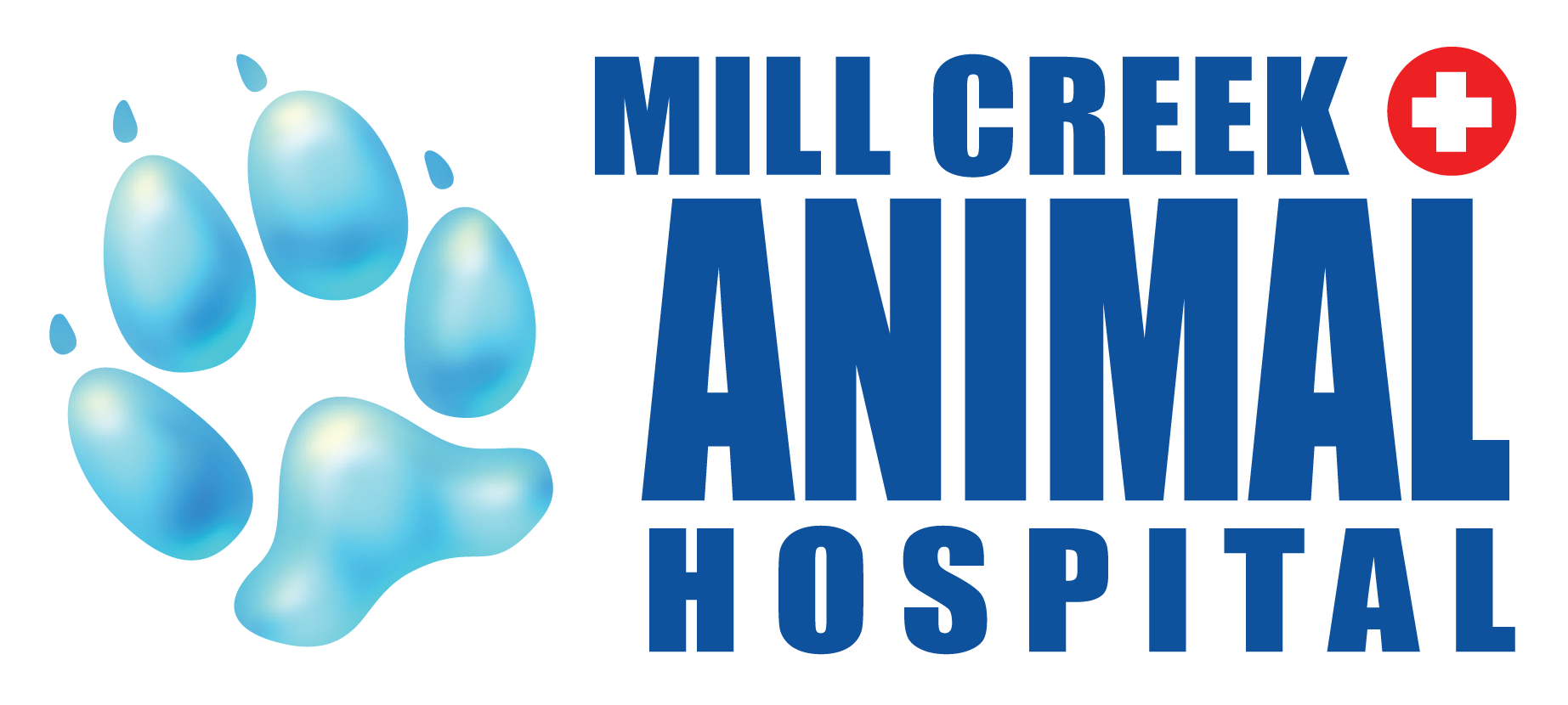As our pets age, there is a multitude of issues that can arise. They can be as small as an extra lump or two, or as large as something like cognitive dysfunction, which is similar to dementia in people. The main signs of these syndromes are progressive confusion, reversal of day and night wake/sleep patterns and poor adaptability to new situations. There are a number of different studies but basically, these pets can be affected as young as 8 years and over 14 years-old the chances of pets being affected raise drastically. One of the problems of this syndrome is that the clinical signs progress so gradually that most pet owners fail to see the early stages and assume they are just normal signs of aging.
One of my doctors likes to tell the story of one of his cats from long ago. This cat enjoyed a nightly ritual of jumping up on the bathroom counter and meowing until someone came and turned on the tap. He would then have a leisurely five-minute drink out of the running tap. When he got older, one day he jumped up on the counter, meowed, took a one-minute drink and jumped down. This progressed daily until he was jumping up, meowing, taking a ten-second drink, jumping down and returning to do it all over again every few minutes. The poor guy just didn’t remember having had his drink! When this first started happening, the doctor thought maybe it was a new weird behavior. As it progressed, the doctor started thinking it was more likely the start of cognitive dysfunction syndrome.
Signs of Cognitive Dysfunction Syndrome (CDS)
Disorientation: forgetting things like where the door is, pacing, staring at walls or floors or into space, getting stuck in corners, not recognizing familiar people.
Interactive Changes: Decreased interest in affection – doesn’t want to be petted for long when before they enjoyed lots of attention, spends more time alone. Tends to be clingier and/or fearful.
Sleep/Wake cycle Changes: Wakes at night more often and sleeps more during the day, sleeps unusually deeply, waking at weird times, vocalizing at night.
House Soiling and Memory changes: Doesn’t respond to learned commands like tricks or names, a decrease of signaling to go outside, soiling outside of the litterbox(cats), difficulty getting the pet’s attention.
Activity: Doesn’t want to play with toys or family members, repetitive behaviors like chewing or licking.
Anxiety: Restlessness, barking, separation anxiety, more reactive/fearful to loud sounds, increased fear of the outside, panting, drooling.
How to combat these things
Medication: There is a medication the doctor can prescribe that can help that is called Anipryl. It helps prolong dopamine activity. Since dopamine breakdown results in free radicals, Anipryl (L-Deprenyl) also helps reduce the number of free radicals in the brain. Free radicals can cause quite the issues on brain tissue so it is a good idea to try to keep them under control as much as possible. Some dogs on this medication can show improvement in the first few days or weeks and some dogs show improvement during the first few months. The earlier they can start on this medication the better.
Food and Antioxidants: There are therapeutic diets that contain antioxidants, omega-3 fatty acids, and mitochondrial cofactors. These diets can improve the performance of cognitive tasks. These improvements can be seen as early as 2 to 8 weeks after starting the food.
Environmental Enrichment: If your dog’s vision is still good, teach hand signals! If the hearing fails then they will at least have the hand signals to fall back on. Play daily with toys. Puzzle toys are always fun for dogs both young and old and they encourage the dogs to use their brains to figure them out.
A few extras: Keep the radio on to classical music to help drown out loud outside noises when you are not home if your dog is showing signs of anxiety. Keep the blinds closed if your dog is easily frightened by people walking by or outside stimulation. Night lights are amazing for pets as they age! The illuminate the way in the dark and makes it a little more manageable.
A combined effect of a specialized diet and an enriched environment provide the greatest improvement for dogs showing signs of Cognitive Dysfunction Syndrome. If your dog or cat are showing any signs that you are unsure of, your veterinarian would be happy to help you determine what is going on and the best course of action.
This blog was written with the help of Dr. Gerald Burant, veterinarypartner.com and www.proplanveterinarydiets.ca
Written by Jill Thiessen, Office Manager



